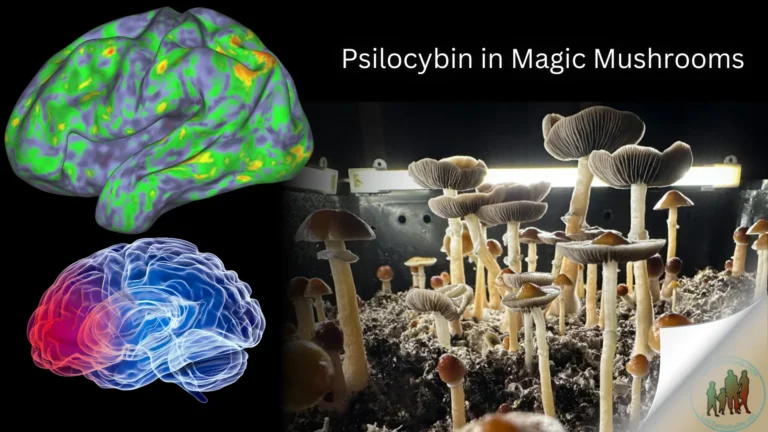Accurately Alzheimer’s diagnosis, particularly in its early stages, remains a significant challenge in today’s medical landscape. Nevertheless, a breakthrough is on the horizon, as doctors will soon be equipped to identify Alzheimer’s through a straightforward blood test or two.

Researchers are making significant progress in simplifying the diagnosis of Alzheimer’s disease, a historically challenging and time-consuming process. In the coming years, the landscape of Alzheimer’s diagnosis may undergo a revolutionary change, with the potential introduction of one or more blood tests that offer a more accessible and efficient approach for patients.
Despite the existence of several blood tests for Alzheimer’s in research settings, they have not yet become standard practice for doctors in many countries. To bridge this gap, a coalition of UK medical research funders has launched a project with the aim of identifying the most effective blood test for real-world diagnostic use.
The project’s overarching objective is to have at least one blood test ready for routine use when individuals consult a doctor for memory-related concerns within the next five years. Susan Kohlhaas of Alzheimer’s Research UK expressed optimism about the transformative potential of this initiative, stating, “We expect, in the next five years, the pathway to somebody getting a diagnosis to be completely different.”
The optimism regarding the project’s success stems from the established accuracy of these blood tests in research settings. Joanne Rodda of the Kent and Medway Medical School in Canterbury, UK, emphasized that these tests demonstrate accuracy levels comparable to spinal fluid tests, a current component of the Alzheimer’s diagnosis process.

Typically, blood tests used in research zero in on two proteins linked to Alzheimer’s disease: beta-amyloid, accumulating outside brain cells, and tau, accumulating within the cells. Across the globe, various companies provide testing for these Alzheimer’s-related proteins to evaluate the presence of the condition.
The necessity for real-world assessment arises from the fact that clinical trials involving Alzheimer’s patients often predominantly include individuals who are white and have higher income levels, potentially not representing the broader population affected by the disease. Furthermore, variables such as diet and lifestyle can influence test results.
The Blood Biomarker Challenge, a collaborative project between the Alzheimer’s Society, Alzheimer’s Research UK, and the UK’s National Institute for Health and Care Research, aims to evaluate various available blood tests and assess their practicality in diagnosing Alzheimer’s.
The impetus for such advancements is, in part, linked to the emergence of treatments designed to clear amyloid from the brain. Notably, drugs like lecanemab show promise in slowing Alzheimer’s progression, but they require confirmation of amyloid buildup, often obtained through invasive procedures. A dependable blood test for amyloid could simplify and expedite this process.
Even before these new treatments become widely accessible, a blood test has the potential to streamline the diagnostic journey for individuals grappling with memory issues. Currently, obtaining an Alzheimer’s diagnosis involves a lengthy and multifaceted process, incorporating cognitive tests and brain scans. A blood test could complement these assessments rather than replace them.
While the prospect of blood tests for Alzheimer’s is promising, it is crucial to underscore that these tests should be administered within a clinical context and under a doctor’s guidance. As highlighted by Rob Howard at University College London, although consumer tests are available online in the US, they should not be considered a substitute for a comprehensive clinical assessment. Proper diagnosis and treatment decisions should always involve the expertise of medical professionals.
Alzheimer’s Disease:
- Definition: Alzheimer’s disease is a progressive neurodegenerative disorder that affects the brain, leading to memory loss, cognitive decline, and behavioral changes.
- Symptoms: Common symptoms include memory loss, difficulty in problem-solving, confusion, changes in mood or personality, and challenges in performing familiar tasks.
- Causes: The exact cause of Alzheimer’s is not fully understood, but it involves a combination of genetic, environmental, and lifestyle factors. Abnormal protein deposits, such as beta-amyloid plaques and tau tangles, are characteristic of the disease.
- Diagnosis: Diagnosis is often based on a combination of medical history, physical examination, cognitive tests, and sometimes imaging studies. Definitive diagnosis usually requires post-mortem examination of the brain.
- Treatment: There is no cure for Alzheimer’s, but medications and interventions can help manage symptoms and slow down the progression of the disease. Supportive care, including assistance with daily activities, is also important.
- Prevention: While there’s no guaranteed way to prevent Alzheimer’s, certain lifestyle factors, such as regular exercise, a healthy diet, mental stimulation, and social engagement, may contribute to brain health and reduce the risk.
FAQs:
Q: Can Alzheimer’s really be diagnosed through a blood test?
A: Yes, advancements in research suggest that Alzheimer’s diagnosis may soon be possible through a simple blood test.
Q: How does a blood test diagnose Alzheimer’s?
A: The blood test typically focuses on detecting specific proteins associated with Alzheimer’s, such as beta-amyloid and tau, offering a less invasive alternative to current diagnostic methods.
Q: Are these blood tests accurate?
A: Research indicates that these blood tests demonstrate accuracy comparable to existing diagnostic procedures like spinal fluid tests.
Q: Why is there a need for a blood test for Alzheimer’s?
A: A reliable blood test could revolutionize Alzheimer’s diagnosis, providing a more accessible and efficient method compared to current procedures. It may also support the development of treatments targeting Alzheimer’s-related proteins.
Q: How soon could blood tests for Alzheimer’s be available?
A: Efforts are underway to have at least one blood test ready for routine use within the next five years, offering hope for a quicker and more straightforward diagnostic process.
Q: What is the Blood Biomarker Challenge, and how does it contribute to Alzheimer’s diagnosis?
A: The Blood Biomarker Challenge, conducted by organizations like the Alzheimer’s Society and Alzheimer’s Research UK, aims to compare different blood tests to determine their practicality for diagnosing Alzheimer’s.
Q: Can a blood test replace current diagnostic methods entirely?
A: While promising, a blood test is not expected to replace current diagnostic methods entirely. Instead, it is likely to complement existing assessments, offering a more efficient and accessible option.
Q: Is a blood test for Alzheimer’s available for public use now?
A: As of now, these blood tests are primarily in the research phase, and their use in clinical settings is still being developed. It’s crucial to await further validation and regulatory approval before widespread adoption.
Q: How can individuals with memory concerns benefit from these blood tests?
A: A blood test could potentially expedite the diagnostic process for individuals experiencing memory issues, providing a quicker and less invasive means of assessing Alzheimer’s risk.
Q: Should individuals rely on online consumer tests for Alzheimer’s?
A: It’s essential to emphasize that, even if consumer tests become available, they should not substitute a comprehensive clinical assessment. Diagnosis and treatment decisions for Alzheimer’s should always involve consultation with medical professionals.
Source: Soon, doctors may be able to diagnose Alzheimer’s using just a simple blood test







